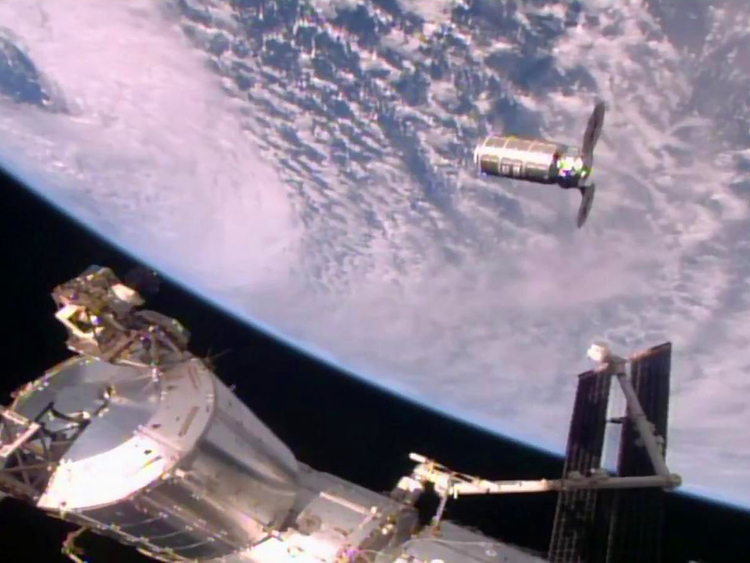Tickets to Space Station to be sold soon, Nasa says
Companies will have to pay about $35,000 a night per passenger to sleep in station’s beds

Washington, D.C.: Becoming a Nasa astronaut is far harder than getting into Harvard, but soon, ordinary people — at least rich ones with tens of millions of dollars to blow on a big vacation — will be able to buy a rocket ride into orbit.
Nasa announced on Friday that — for the first time — it is allowing private citizens to fly, if not to the moon, at least to the International Space Station, the only place where people currently live off the planet.
Nasa is not transforming into a space travel agency.
Private companies will have to pay it about $35,000 (Dh128,537) a night per passenger to sleep in the station’s beds and use its amenities, including air, water, the internet and the toilet. (The companies would charge much more to cover rocket flights to and from space, and to make a profit.)
Friday’s announcement was one of several new policies designed to allow companies to take advantage of the space station as a place for business, something that Nasa has often frowned on in the past.
“This is a huge different way for us to do business,” William H. Gerstenmaier, Nasa’s associate administrator for human exploration and operations, said during a news conference at Nasdaq in New York.
The announcement could also help resolve questions about the space station’s future.
The Trump administration last year created tumult when it proposed ending federal financing of the International Space Station by the end of 2024 and move to commercial alternatives that are far from being built.
Private orbital outposts
On Friday, Nasa officials said the goal was an eventual transition to orbital outposts fully operated by private companies, but there was no set date.
“We’re hoping new capabilities will develop that can one day take over for the space station,” said Robyn Gatens, deputy space station director for Nasa.
“We won’t transition off station until we have something else to go to, so we don’t have a date certain.”
Among the agency’s other announcements Friday: It will allow some ventures that are purely for profit, without requiring some educational or research component. That could include flying trinkets to space and then selling them on Earth.
Private ISS module
Later this month, Nasa will seek proposals for adding a module to the space station that is owned and operated by a private company, and it will select a plan by the end of the year.
What is not up for sale, at least in Friday’s announcements, are corporate sponsorships for parts of the station. Nasa astronauts still would not be allowed to endorse products, but might perform off-camera production on commercials from orbit for paying customers.
While pricey, the revenues generated by space tourism for Nasa would not come close to covering the costs of operating the space station, which are one of the agency’s greatest expenses.
It currently spends $3 billion to $4 billion a year, or more than $8 million a day.
“It’s not going to be a profitmaking venture for Nasa at all,” said Jeff DeWitt, the agency’s chief financial officer.
But the income could help cover NASA’s costs and allow it to invest more money in other projects.
DeWitt said it was too early to estimate how much money Nasa could receive through the new ventures, and he said the agency would adjust how much it charges depending on market demand.
Private astronauts
Bigelow Space Operations of North Las Vegas, Nevada, has already reserved four launches. The company will use SpaceX, the rocket company run by Elon Musk, to take private astronauts.
Each flight would have at least four seats.
Because Bigelow is purchasing whole trips aboard the SpaceX capsule, its schedule would be independent of NASA’s, and the stays could be longer, perhaps 30 or 60 days, said Robert Bigelow, chief executive of Bigelow Space Operations and Bigelow Aerospace, a sister company that has an experimental inflatable module currently docked at the station.
The company has yet to start looking for passengers.
“We have to get to first base, which is getting to the point where we can even have something to talk about,” he said.
Bigelow also said no fares have been set.
“What we realise is there are many different ways to price these seats depending on who you are and what you’re doing,” he said.
Axiom Space of Houston, run by Michael Suffredini, a former Nasa space station manager, is also arranging flights and hopes to fly tourists next year.
Both Bigelow and Axiom aim to use the International Space Station as the starting point for setting up their own space stations in orbit.
Bigelow said flying tourists to the International Space Station would give his company experience at handling the complex logistics of arranging space flights.
Sign up for the Daily Briefing
Get the latest news and updates straight to your inbox






